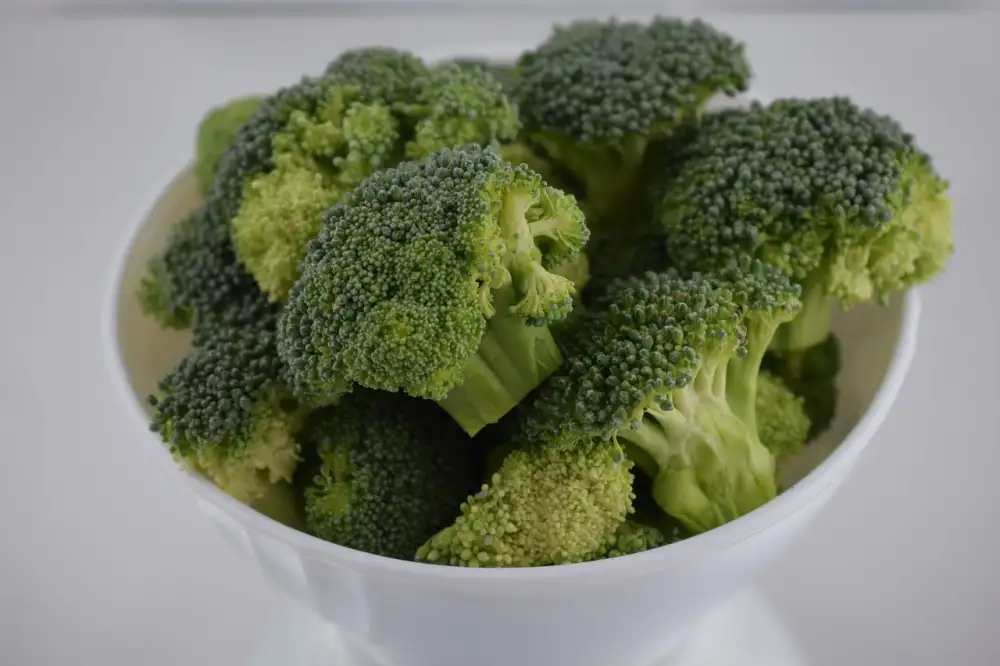Delicious and Nutritious: Discover 10 Healthy Meals for Weight Loss to Kickstart Your Journey to a Fitter You

- Importance of a Balanced Diet for Weight Loss
- Incorporating Lean Proteins in Your Meals
- Including Fiber-Rich Foods for Satiety and Digestion
- Emphasizing on Whole Grains for Nutrient Density
- Adding Colorful Fruits and Vegetables for Essential Vitamins and Minerals
- Utilizing Healthy Fats for Energy and Satiety
- Avoiding Processed Foods and Sugary Beverages
- Portion Control and Mindful Eating for Weight Management
When it comes to achieving weight loss goals, a healthy and balanced diet plays a crucial role. Instead of resorting to fad diets or extreme measures, focusing on nutritious meals can help you shed those extra pounds in a sustainable way. By incorporating the right ingredients and making smart food choices, you can kickstart your journey to a fitter you. In this article, we will explore 10 delicious and nutritious meals that are not only satisfying but also promote weight loss. So get ready to discover a whole new world of flavors while nourishing your body!
Importance of a Balanced Diet for Weight Loss
A balanced diet is crucial for effective weight loss. It provides the body with essential nutrients while promoting a healthy metabolism. By including a variety of food groups in your meals, you can ensure that your body gets all the necessary vitamins, minerals, and macronutrients it needs to function optimally. This not only aids in weight loss but also supports overall well-being. A balanced diet helps regulate blood sugar levels, reduces cravings, and promotes satiety, making it easier to stick to your weight loss goals. Remember, achieving sustainable weight loss is not about deprivation but about nourishing your body with wholesome foods.
Incorporating Lean Proteins in Your Meals
Incorporating lean proteins in your meals is essential for weight loss. Not only do they help to build and repair muscles, but they also keep you feeling full and satisfied for longer periods of time. Opt for sources such as skinless chicken breast, turkey, fish, tofu, and legumes. These protein-rich foods are low in calories and fat, making them ideal choices for a healthy meal plan. Be sure to include a serving of lean protein in each of your meals to support your weight loss journey.
Including Fiber-Rich Foods for Satiety and Digestion
Including fiber-rich foods in your meals is essential for weight loss. Fiber helps to keep you feeling full and satisfied, reducing the chances of overeating. It also aids in digestion, preventing constipation and promoting a healthy gut. Some excellent sources of fiber include whole grains like oats and quinoa, legumes such as lentils and chickpeas, and fruits and vegetables like berries, broccoli, and avocados. By incorporating these foods into your diet, you can improve satiety and support optimal digestion on your weight loss journey.
Emphasizing on Whole Grains for Nutrient Density
When it comes to weight loss, incorporating whole grains into your meals is a smart choice. Whole grains are packed with essential nutrients and fiber, making them a nutritious addition to any diet. Unlike refined grains, such as white rice or white bread, whole grains retain the bran and germ, which contain valuable vitamins, minerals, and antioxidants.
Some popular whole grain options include quinoa, brown rice, oats, and whole wheat products like pasta and bread. These foods not only provide a satisfying texture and taste but also offer a range of health benefits. Whole grains are rich in complex carbohydrates that provide sustained energy throughout the day.
In addition to their nutrient density, whole grains also contribute to feelings of fullness and satiety. The high fiber content helps regulate digestion and keeps you feeling satisfied for longer periods of time. This can prevent overeating and unnecessary snacking between meals.
To incorporate more whole grains into your diet, try replacing refined grain products with their whole grain counterparts. Swap white rice for brown rice in stir-fries or opt for whole wheat bread instead of white bread for sandwiches. Experiment with different types of whole grains to add variety to your meals while reaping the nutritional benefits.
Remember that portion control is still important even when consuming healthy foods like whole grains. Be mindful of the serving sizes recommended on packaging or consult a nutritionist for guidance on appropriate portions. By emphasizing on whole grains in your meals, you'll not only support your weight loss goals but also improve your overall health and well-being.
Adding Colorful Fruits and Vegetables for Essential Vitamins and Minerals
Incorporating a variety of colorful fruits and vegetables into your meals is crucial for weight loss and overall health. These vibrant foods are packed with essential vitamins, minerals, and antioxidants that support your body's functions.
Include leafy greens like spinach, kale, and arugula in your salads or stir-fries to boost your intake of iron, calcium, and vitamin K. Berries such as blueberries, strawberries, and raspberries are rich in antioxidants that help fight inflammation and promote healthy aging.
Citrus fruits like oranges and grapefruits are excellent sources of vitamin C, which boosts immunity and aids in collagen production for healthy skin. Don't forget about the power of cruciferous vegetables like broccoli, cauliflower, and Brussels sprouts—they provide fiber, vitamins A and C, as well as cancer-fighting compounds.
By incorporating a rainbow of fruits and vegetables into your meals, you'll not only enhance the flavor but also provide your body with the necessary nutrients it needs to thrive on your weight loss journey.
Utilizing Healthy Fats for Energy and Satiety
Contrary to popular belief, not all fats are bad for you. In fact, incorporating healthy fats into your meals can actually aid in weight loss. Healthy fats, such as those found in avocados, nuts, seeds, and olive oil, provide a slow release of energy and help keep you feeling full and satisfied for longer periods of time. They also play a crucial role in nutrient absorption and brain function.
When preparing your meals, try swapping out saturated fats (found in butter and fatty meats) with healthier alternatives like avocado or olive oil. Add a handful of nuts or seeds to your salads or stir-fries for an extra dose of healthy fats. Remember to consume these fats in moderation as they are still calorie-dense.
By including healthy fats in your diet, you'll not only enhance the flavor of your meals but also promote satiety and maintain steady energy levels throughout the day. So go ahead, embrace the goodness of healthy fats and enjoy their benefits on your weight loss journey.
Avoiding Processed Foods and Sugary Beverages
When it comes to weight loss, one of the most important factors to consider is the quality of the food we consume. Processed foods and sugary beverages are notorious for their high calorie content and lack of nutritional value. These products are often loaded with added sugars, unhealthy fats, and artificial ingredients that can sabotage our weight loss efforts.
Processed foods, such as packaged snacks, frozen meals, and sugary cereals, are typically high in calories but low in nutrients. They often lack essential vitamins, minerals, and fiber that our bodies need to function properly. Additionally, these foods tend to be highly palatable and can lead to overeating due to their addictive nature.
Sugary beverages like soda, energy drinks, and fruit juices are also major culprits when it comes to weight gain. These drinks are packed with empty calories and can cause a spike in blood sugar levels. Consuming sugary beverages regularly has been linked to an increased risk of obesity, type 2 diabetes, and other chronic diseases.
To avoid processed foods and sugary beverages, it's important to read food labels carefully and choose whole, unprocessed options whenever possible. Opt for fresh fruits and vegetables, lean proteins like chicken or fish, whole grains like quinoa or brown rice, and healthy fats from sources like avocados or nuts.
Instead of reaching for a soda or sugary drink, try flavored water infused with fruits or herbs for a refreshing alternative. And if you have a sweet tooth craving, satisfy it with natural sweeteners like honey or maple syrup in moderation.
By avoiding processed foods and sugary beverages, you'll not only reduce your calorie intake but also improve your overall health. Your body will thank you for nourishing it with real food that provides the necessary nutrients for sustainable weight loss.
Portion Control and Mindful Eating for Weight Management
Portion control and mindful eating are crucial aspects of weight management. It's not just about what you eat, but also how much you eat. By being aware of portion sizes and listening to your body's hunger cues, you can avoid overeating and maintain a healthy weight. Start by using smaller plates and bowls to visually trick your mind into thinking you're eating more. Chew your food slowly and savor each bite, allowing yourself to fully enjoy the flavors. Pay attention to feelings of fullness and stop eating when you're satisfied, not stuffed. Mindful eating promotes a healthier relationship with food and helps you make better choices for long-term weight loss success.
In conclusion, creating a sustainable and delicious meal plan for weight loss is essential for long-term success. By incorporating lean proteins, fiber-rich foods, whole grains, colorful fruits and vegetables, and healthy fats into your meals, you can ensure that you are getting the necessary nutrients while feeling satisfied. It is also important to avoid processed foods and sugary beverages that can hinder your weight loss journey. Additionally, practicing portion control and mindful eating will help you manage your weight effectively. Remember, achieving a fitter you is not just about losing weight but also nourishing your body with nutritious and flavorful meals.
Published: 18. 12. 2023
Category: Health



